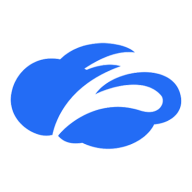



Find out what your peers are saying about Netgate, Fortinet, OPNsense and others in Firewalls.
Clients are now comfortable and not wasting productive hours on IT support.
The automation part is giving us a cost benefit and speed; we can react faster.
It's a very useful tool to mitigate and protect your enterprise.
This is a time-saving measure because we don't need to deploy a cluster or a firewall each time; we just create a virtual system on the management server using the same appliance.
Incident response time has reduced significantly, and downtime due to network issues has been minimized, leading to an improved return on investment.
I have seen a return on investment with Check Point NGFW in terms of time saved and fewer people needed for operations.
The biggest return on investment when using Cisco Secure Firewall is that there's no waste in any infrastructure cost and licensing costs for us.
From my point of view, the biggest return on investment when using Cisco Secure Firewall is the single pane of glass, which is a huge plus for us.
The biggest return on investment for me when using Cisco Secure Firewall is reliability and robust network design.
The managed service aspect of Zscaler Internet Access has allowed for reduced staffing costs, resulting in a saving of approximately 20-25% compared to prior expenses.
They offer very accurate solutions.
The quick resolution of issues with Fortinet FortiGate is due to the support of the company and the fact that the equipment is easy to work with.
I would rate the technical support for Fortinet FortiGate a ten out of ten.
The support team we engaged was knowledgeable and well-versed with the application.
We have escalated issues to Check Point technical support multiple times and have received timely and very good responses.
Even challenging issues like those with VPNs have been resolved efficiently with their help.
I have to provide many logs, yet problems remain unresolved, often requiring workarounds rather than solutions.
I have been working with them on firewalls, wireless, switching, and routing, and the support is the best.
They have expertise and provide solutions for the most difficult problems.
The technical support for Zscaler Internet Access is rated around seven out of ten due to some response time issues and the engagement model.
I find customer support to be quite adequate
They scale up really well from smaller models like the FortiGate 40 and 50 to bigger sites with the FortiGate 100 for more throughput - up to enterprise datacenters.
The variation comes in terms of the interfaces and throughputs, but from a security perspective, you get the same benefit, irrespective of whether you have an entry-level unit or an enterprise.
We determine sizing based on multiple factors: number of users, available links, traffic types, server count, services in use, and whether services will be published.
If specified correctly, even the smaller boxes offer high session and bandwidth rates, making the solution highly scalable, even up to telco-level requirements.
Scalability must be carefully planned for, considering future growth and user base increases.
They offer multiple solutions from SMBs to enterprise data centers, making it an easily scalable solution with no issues in scalability.
Scalability presents a challenge.
Compared to FortiGate and Palo Alto, it lags in configuration and other aspects.
Even with the highest one, the 4600, we still face issues, particularly when transitioning between screens; it becomes very slow.
I find Zscaler Internet Access to be highly scalable, which was one of the reasons for choosing it.
Zscaler Internet Access is scalable and has points of presence across the globe to ensure low latency and reliable connections.
We're experiencing 99.999% availability consistently.
I would rate the stability of Fortinet FortiGate a ten out of ten.
The solution is very stable.
While the solution is generally stable, there are complications, such as requiring SmartConsole for deployment and upgrades, which can be time-consuming.
I have worked with Check Point products for 15 years and haven't found any stability or performance issues.
The use of Check Point firewalls has helped improve our security posture without any downtime.
We have often encountered split-brain scenarios during failover processes and code upgrades, which have been persistent problems for us.
We work with a cluster with high availability, so if something goes wrong, we have it functioning.
Cisco Secure Firewall offers exceptional performance and stability.
Zscaler Internet Access is stable and capable of building resilient architectures.
Zscaler Internet Access is very stable, and I would rate its stability as nine out of ten.
Investing in a solution that can accommodate such growth would be more cost-effective than repeatedly purchasing new hardware.
The constant daily revisions necessitate meticulous identification of the relevant documents to prevent the use of outdated information that could jeopardize our environment.
While Fortinet claims to offer a comprehensive network solution, it falls short in addressing computer application issues, particularly server security.
Other products, like FortiGate, are perceived as more intuitive because they are easier to configure from the start.
More granularity and control for threat prevention, especially on the OT side, would be beneficial.
I believe Check Point NGFW can be improved by making its initial configuration and deployment easier in the future because the first-time setup is really hard.
My ongoing complaint for the last six years has been the lack of CLI functionality, which hinders my ability to work on the firewall, alongside concerns regarding deployment time.
Firepower Management Center is quite out of date compared to other vendors.
The integration between Cisco products themselves presents difficulties, such as SD-WAN configuration.
The response time and engagement model for technical support could be improved to handle complex outages more efficiently.
One feature I am missing is the ability to connect automatically to internal monitoring systems.
FortiGate is priced lower than Palo Alto.
Last year, I renewed the support for three years, which can sometimes be expensive but depends on the security benefits and how it helps us.
It is about 20% cheaper.
In comparison to Fortinet and other products, the pricing may be considered high.
Compared to other solutions, the pricing of Check Point NGFW is high.
The perception is that Check Point NGFW is expensive, especially when all software modules are included.
It's good to have them, however, it costs us a lot.
It's considered a premium, but people pay that price for Cisco.
There are a lot of in-place contracts for us that provide the benefit of discounts.
Zscaler Internet Access is recognized as an expensive solution.
Zscaler Internet Access is less expensive than competitors like Palo Alto, offering a premium service justified by security enhancements and cost-effective scalability.
In terms of security, we have not experienced any security flaws or loopholes, and it has proven to be quite stable.
FortiGate has helped reduce the risk of cyberattacks that might disrupt our client's production.
These features help reduce our downtime, manage the ISPs, and deploy SLAs for all the website traffic.
The firewall's default behavior of blocking all traffic, including a cleanup rule that blocks everything from external to internal sources, is highly valuable for protecting our network.
The most valuable features in my experience include perimeter firewalling, cloud and mobile security, application control, URL filtering, DLP, threat prevention, intrusion protection, and safeguarding against malware, botnets, and zero-day attacks.
Since implementing it, we have noticed a lot less getting through that maybe other antivirus within firewalls had failed to catch.
What stands out positively about Cisco is their training and support, which has effectively prepared engineers to work with their products.
This is very important to my organization, as we work extensively with security because we are a bank, so we can keep the data safe.
Cisco Secure Firewall allows me to safeguard Layer 7 or Layer 3 and manage the security rules with the business needs of my organization.
The most valuable feature for me is the ability to see how my network and traffic looks with modules like analytics and insights.
Some of the most valuable features of Zscaler Internet Access include secure web gateways, URL filtering, data loss prevention, anti-malware defense, file extension blocking, and a comprehensive categorization system.




Fortinet FortiGate offers comprehensive network security and firewall protection across multiple locations. It effectively manages data traffic and secures environments with features like VPN, intrusion prevention, and UTM controls.
Organizations rely on Fortinet FortiGate for its robust integration with advanced security policies, ensuring significant protection for enterprises, cloud environments, and educational sectors. It facilitates network segmentation, application-level security, and authentication management, securing communication within and between locations such as branches and data centers. Its efficient SD-WAN and UTM features enable streamlined data management and enhanced threat protection capabilities. Users appreciate its centralized management, facilitating seamless operations across diverse environments.
What are the key features of Fortinet FortiGate?
What benefits should users expect from Fortinet FortiGate?
Fortinet FortiGate is crucial in sectors like education, offering robust networks for secure data flow between campuses and facilitating remote learning. In enterprise environments, it allows efficient management of application traffic and security across multiple branches, while in the cloud, it seamlessly integrates with diverse platforms to enhance security infrastructure.
Check Point NGFW provides comprehensive firewall protection, managing VPNs, and securing network perimeters with advanced threat prevention techniques. It's widely used to protect businesses, data centers, and ensure secure traffic management.
Check Point NGFW offers robust security for companies, delivering security features like threat prevention, URL filtering, and intrusion prevention across both layer 3 and layer 7. It supports remote access, web filtering, application control, and safeguards against malware, botnets, and zero-day attacks. With its intuitive management console, deep packet inspection, centralized management capabilities, and sophisticated threat detection, Check Point NGFW enhances network security and productivity. The system integrates seamlessly with other technologies and provides real-time monitoring, detailed reporting, and automated policy management. Additionally, its setup is straightforward, it scales well, and offers comprehensive logging.
What are the key features?
What are the benefits?
Check Point NGFW is implemented in industries like finance, healthcare, and retail, where protecting sensitive data and ensuring compliance are critical. Its advanced security features and ease of management make it suitable for large enterprises and data centers, ensuring reliable and secure network operations.
Cisco Secure Firewall stands as a robust and adaptable security solution, catering to organizations of all sizes. It's designed to shield networks from a diverse array of cyber threats, such as ransomware, malware, and phishing attacks. Beyond mere protection, it also offers secure access to corporate resources, beneficial for employees, partners, and customers alike. One of its key functions includes network segmentation, which serves to isolate critical assets and minimize the risk of lateral movement within the network.
The core features of Cisco Secure Firewall are multifaceted:
The benefits of deploying Cisco Secure Firewall are substantial. It significantly reduces the risk of cyberattacks, thereby enhancing the security posture of an organization. This security also translates into increased productivity, as secure access means uninterrupted work. Compliance with industry regulations is another advantage, as secure access and network segmentation align with many regulatory standards. Additionally, it helps in reducing IT costs by automating security tasks and simplifying management processes.
In practical scenarios, Cisco Secure Firewall finds diverse applications. It's instrumental in protecting branch offices from cyberattacks, securing remote access for various stakeholders, safeguarding cloud workloads, and segmenting networks to isolate sensitive areas.
User reviews from PeerSpot reflect an overall positive experience with the Cisco Secure Firewall. Users appreciate its ease of configuration, good management capabilities, robust protection, user-friendly interface, and scalability. However, some areas for improvement include better integration capabilities with other vendors, maturity, control over bandwidth for end-users, and addressing software bugs.
In summary, Cisco Secure Firewall is a comprehensive, versatile, and reliable security solution that effectively meets the security needs of various organizations. It offers a balance of advanced protection, user-friendly management, and scalability, making it a valuable asset in the realm of network security.
Zscaler Internet Access is a cloud-native security service edge (SSE) platform. Its main purpose is to provide AI-powered protection for all users, all applications, and all locations. The solution replaces other legacy network security solutions to stop advanced attacks and prevent data loss by using a comprehensive zero trust approach.
Zscaler Internet Access Features
Zscaler Internet Access has many valuable key features. Some of the most useful ones include:
Zscaler Internet Access Benefits
There are several benefits to implementing Zscaler Internet Access. Some of the biggest advantages the solution offers include:
Reviews from Real Users
Below are some reviews and helpful feedback written by Zscaler Internet Access users.
A Service Manager at a construction company says, "There are a bunch of different capabilities that are valuable within the platform. We use quite a lot of them, but not everything. The ones that are most important to us are the URL Filtering and the application control. For our needs, the cloud-native proxy architecture is a very good solution. This architecture helps with cyber threats because we inspect most of the traffic and we can see that a lot of threats are stopped directly in the secure web gateway."
Owen N., Security Architect at Claro Enterprise Solutions, explains that the solution’s most valuable features include “The integration of the gateway that inspects all ports and protocols. So, there is threat prevention; The cloud sandbox; VNS security; Access control that will protect URL filtering and the cloud firewall; Data protection that will protect your gateway, like your CASB or your cloud DLP; The capabilities of this will point your traffic to Zscaler Cloud.”
An Architecture Senior Manager at an insurance company mentions, "The data loss prevention feature is the most valuable. It stops our users from inadvertently leaking our customers' data to the Internet or anywhere else it shouldn't go." He also adds, “The solution provides quick access to cloud services, securing our data and allowing us to inspect all our traffic.”